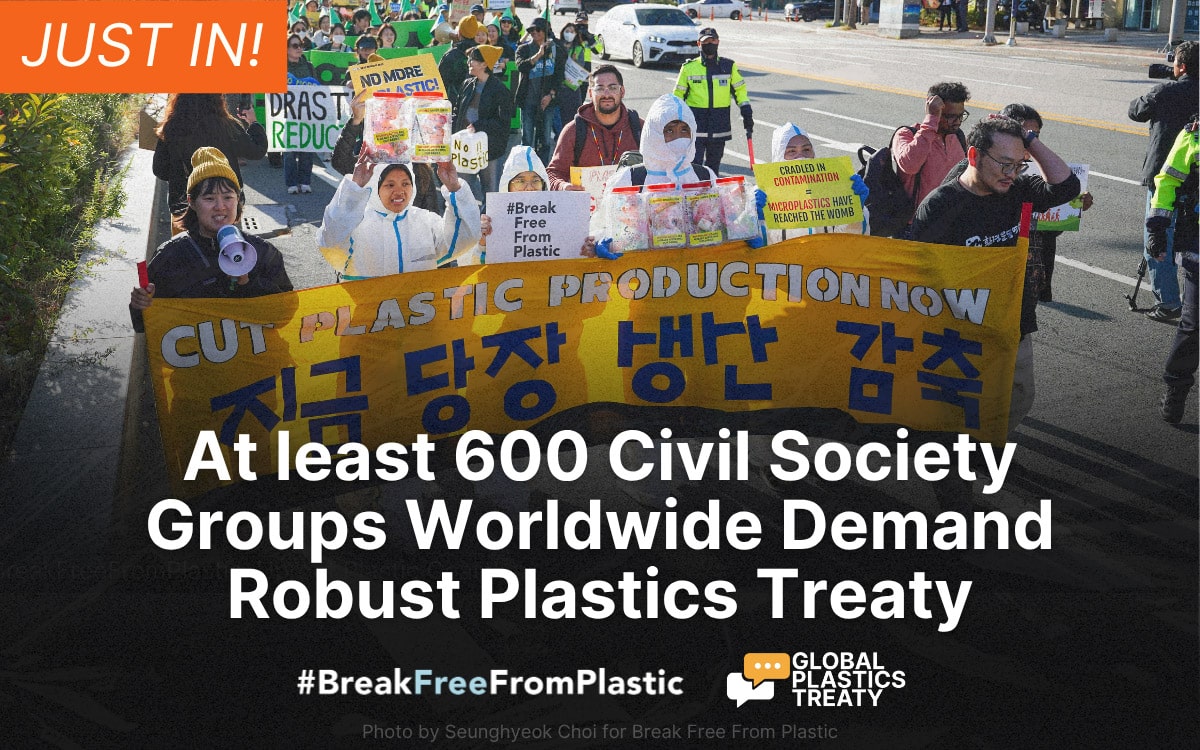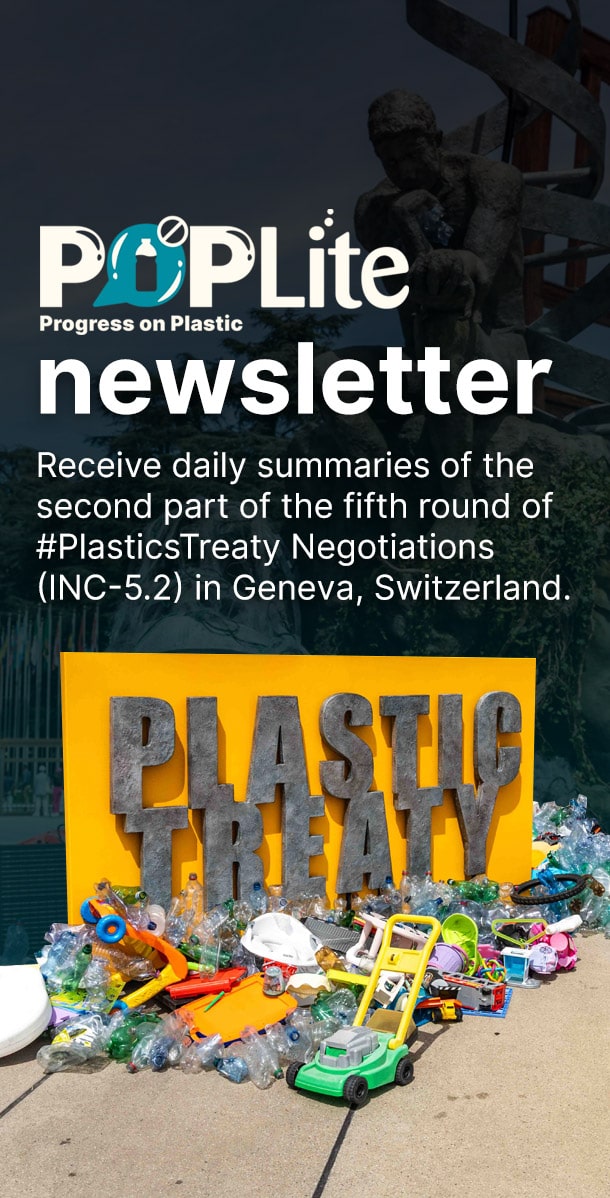Geneva, Switzerland; 22 July 2025— At least 600 civil society organizations from around the world have signed a manifesto that outlines key demands for a strong global treaty that shall end plastic pollution through significant reduction in plastic production.
The document titled, “Manifesto for a Future Free from Plastic Pollution,” is an urgent call for government leaders to champion people’s rights to a healthy environment as delegations gather in Geneva, Switzerland, on August 5-14, 2025 for the next and probably last meeting of the International Negotiating Committee (INC-5.2) for a plastics treaty.
“Plastic is not a choice; it is an imposition on our daily lives, with harmful impacts on the climate, biodiversity, human health, human rights, and the ability of the planet to support and sustain life,” reads the Manifesto.
Seen as a once-in-a-lifetime opportunity to truly end plastic pollution, civil society renews calls for the treaty to ensure significant cuts in global plastic production. “Dedicated, legally binding rules and targets on the production and supply of plastics—including an eventual overall phase-out of production—are paramount for an effective treaty. We need a legal instrument that meets climate targets, harmonizes with other multilateral environmental agreements, and tackles the triple planetary crisis of climate change, biodiversity loss and pollution.”
Aside from drastically reducing global production, groups worldwide also call for elimination of harmful chemicals across the lifecycle of plastics; transparency on plastics information; clear and adequate financial commitments and mechanisms for implementation; just transition for impacted communities; an end to waste colonialism and environmental racism perpetuated by false solutions; prioritization of reuse and refill systems; and the protection of human rights.
Signatories to the manifesto also emphasize that countries must be allowed to make decisions on substantial issues through a majority vote when consensus cannot be reached, to avoid one country or a small group of countries blocking progress. They also demand that polluters must be kept out of the decision-making process, and ask for conflict-of-interest measures to be put in place, saying, “we cannot have vested interests determining our future relationship with plastics.
Now, with barely two weeks left until the next round of negotiations, civil society groups are rallying together this week with various activities in different countries from July 22 to 25 to underscore the urgently needed robust plastics treaty. Individuals are also sending letters to their ministers urging them to support these demands to end plastic pollution. “Together, we must urge nations worldwide to adopt an ambitious and effective treaty,” concludes the manifesto.




